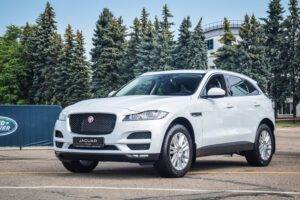Jaguar joins rivals by delaying full electric transition with continued production of F-Pace


Despite previous commitments to transition to an all-electric marque by 2025, Jaguar has announced plans to prolong the production of internal combustion vehicles well into next year.
The decision comes amidst slow demand for zero-emission vehicles and the recognition that maintaining profitable conventional lines is essential for funding the electrification transition.
While Jaguar had initially positioned itself as the “Tesla of the West Midlands” with its ambitious electric-only pledge, the reality is different. Although five petrol and diesel models will be retired this year, the production of the popular £50,000 Jaguar F-Pace will continue into 2025.
This strategic shift mirrors recent moves by other British luxury carmakers. Bentley, previously committed to full electrification by 2030, will continue producing plug-in hybrids for a couple of years longer. Aston Martin has also postponed the launch of its electric cars by two years, with its executive chairman Lawrence Stroll acknowledging the ongoing relevance of hybrids until at least the mid-2030s.
The decision to extend the production of the F-Pace highlights its significance within Jaguar’s lineup, representing over a third of the brand’s annual sales. Despite the industry’s increasing focus on electric vehicles, sales of the F-Pace have seen a notable 22 per cent increase this year.
As part of Jaguar Land Rover, the company remains committed to launching three all-electric cars starting next year, although specific details are scarce. It’s anticipated that the initial vehicle will be a luxury four-door GT or grand tourer-style model, competing in the same segment as the Audi e-tron GT quattro and the upcoming BMW i4, with a price tag exceeding £100,000.
Read more:
Jaguar joins rivals by delaying full electric transition with continued production of F-Pace
